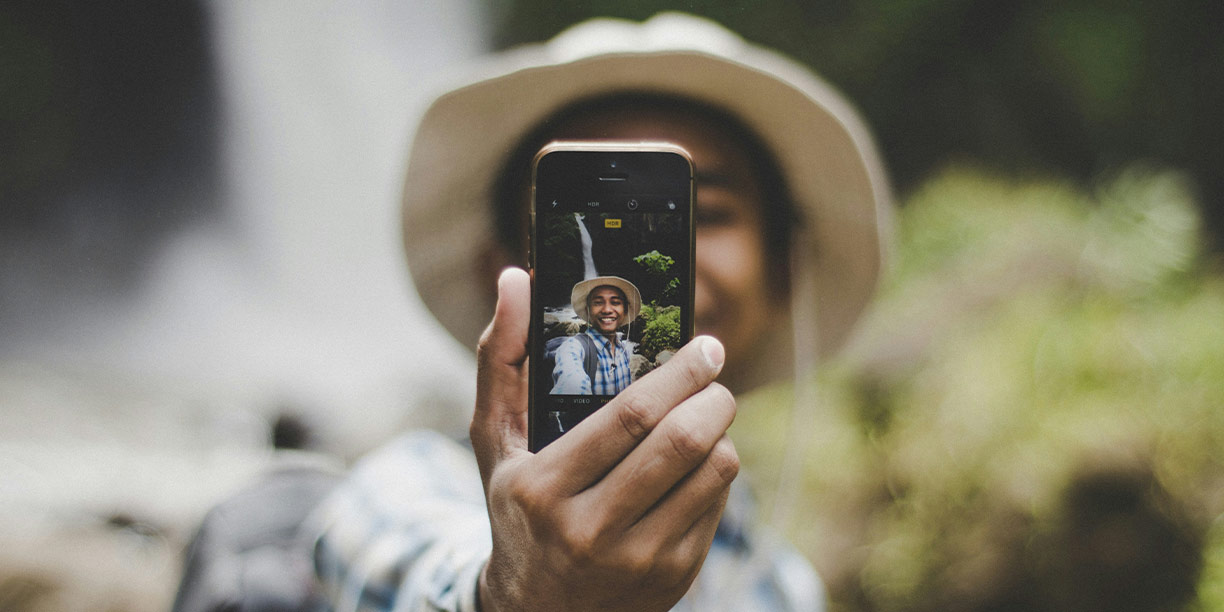Your Guide to Social Media for Nonprofits + 6 Tips

A community member searches for cause-related hashtags on Instagram and finds your nonprofit. A supporter shares your message on Facebook and encourages their network to donate. A company finds your LinkedIn profile while researching sponsorship opportunities.
These are just a few examples of the powerful role social media can play in your conversion funnel—from when a potential donor first learns about your nonprofit organization to their initial gift and ongoing support. Social media platforms are a valuable tool for increasing awareness of your cause and engaging people with your organization’s mission.
Below, we offer six tips for how nonprofits can leverage their social media strategy to guide potential supporters from awareness to engagement to conversion. We also cover how to choose the right platform for your organization and how Classy from GoFundMe can make your social media plan easier with new nonprofit social-sharing tools.
In The Social State of Giving, our collaborative report with GoFundMe, we found that every time an organizer shares their fundraiser online, it can help drive an additional $100 toward their goal.
Gen Z seems particularly enthusiastic about this, with 46% saying they believe people should share their donations online to help spread the word and inspire others. About half also said that they share causes or fundraisers with their social networks at least once a week.
Knowing which social media marketing strategies work can help nonprofits better meet supporters where they are. Here are six to get you started.
1. Lean into videos
Videos make the most engaging content on social media platforms. In fact, Instagram reels show an average impression rate of up to 30%, depending on the account size, which is about double the platform’s other content types. Meanwhile, the video-focused platform TikTok has the highest engagement rate per post compared to Instagram, Facebook, or X (formerly Twitter).
With content creation, nonprofits should make more videos, including livestreams. However, it’s critical to note that it’s not always professionally produced video content that sees the most engagement. Quick, relatable video snippets can capture your target audience’s attention without requiring significant time or budget to create.
2. Keep using hashtags
If you’ve used social media for a while, hashtags may seem outdated. However, data still shows that they can increase engagement. Depending on the account size, using hashtags in an Instagram post can raise reach by over 15%, while tweets on X that use hashtags see 2x more engagement than those that don’t.
It’s clear that social media users still follow and participate in hashtag campaigns, providing nonprofits with an opportunity to boost key initiatives to new audiences. We’ll share more details on the most popular and effective hashtags to use based on the social media platform below.
3. Work with the limits of static posts
Static posts, such as a solo image on Instagram or a link-only post on Facebook, perform the lowest of any social media format. This doesn’t mean you shouldn’t use these post types, but consider ways to boost their potential engagement.
On Instagram, use the carousel feature to add up to 20 images within a single post that users can scroll through. Carousel posts see greater engagement because they show up in users’ feeds twice: Your first photo will be their initial impression, and when they refresh their feed, they’ll then see the second photo in your lineup.
Remember that visual content tends to receive the most engagement. If sharing a link on Facebook, try sharing it with a photo. You can use a service like Bitly or TinyURL to shorten links and make your posts look cleaner.
You can also optimize engagement for static posts by using a mix of infographics, photos, stories, and appeals, and engaging with your audience through liking, favoriting, or sharing their content.
4. Be consistent with posting
The average number of weekly posts for nonprofits on most social media platforms is between four and six. TikTok tends to have less-frequent posting since that content takes more time to create. Regardless of how often your nonprofit chooses to share social media content, the key is to be consistent.
A regular cadence helps keep your audience engaged and lets them know when to expect updates from you. Posting frequently enough also gives your social media management team crucial insight into what works best for your followers. Start with social media best practices, but don’t be afraid to pivot if you see more success on one platform versus another. For example, with Instagram carousel posts rather than reels.
A social media content calendar can help your team maintain a regular schedule and plan for more frequent posts leading up to key giving days. Our visual content planner offers a template to get you started.
You can also lean on social media management tools to make the process easier, like the ability to schedule posts in advance.
5. Leverage social media ads
Digital advertising on social media can be especially effective at acquiring new donors. Here are a few tips for managing paid ads on three of the most used online platforms.
- Extend your reach with Google Ads on Google Search results, Google Search partners’ websites, and Google Maps.
- Create or update ads to highlight your latest campaigns, and pin the new headlines and descriptions in your Google Ads manager to ensure the correct copy appears on ads.
- Take advantage of Google Ad Grants to receive up to $10,000 per month of free search advertising.
Meta
- Gain access to Meta’s Instagram and Facebook advertising, two of the most popular social media platforms.
- Leverage Meta Ads best by segmenting your audience into previous donors and net new prospective donors.
- Create ads highlighting the impact of previous donors’ donations, and outline how additional support can be helpful.
TikTok
- Drive effective advertising by leveraging the power of videos on TikTok.
- Run brand awareness campaigns on the platform to broaden audiences.
- Ensure your TikTok material matches the branding and messaging of your donation site, from headlines to images.
- Have donors or beneficiaries create TikToks on your behalf to use throughout the campaign. This will help make ads feel native to the platform and not overproduced.
6. Use source codes
Source codes track and measure the traffic to and success of each of your marketing channels. They provide metrics to help optimize your fundraising campaign marketing strategies. Learn more about how to set them up on Classy in this support article.
Use the data you acquire throughout the year to support your content development decisions. Doing so can help you understand which social media channels resonate most with your audience so you can focus your donor acquisition efforts effectively.
Pro tip: Keep your campaign URLs handy and organized by adding them to a spreadsheet.
When considering your social media presence, focus on the channels where you can be the most successful. To help with your nonprofit social media strategy, here’s an overview of four of the best social media platforms in terms of potential reach.
Whichever you choose, understand how its algorithm works and the type of content that suits it best.
Facebook sees a slightly older demographic than the rest of the channels we’ll go over. It also drives the most traffic industry-wide, partly due to the ease of sharing links on your Facebook page. In terms of engagement, here’s what works best on the platform:
- Posts with images consistently see the highest engagement, with photos getting 53% more likes, 104% more comments, and 84% more click-throughs than the average post
- Two-way communication gives supporters an opportunity to share as well and grow their connection with your brand and content
- Event-themed hashtags, whether for larger awareness days or your events, help people find your content
Instagram users are largely young, with nearly 85% under 45. It’s a great platform for attracting Millennial and Gen Z donors in particular. More people are familiar with how it works, so it also offers most teams an easier entry to video-based engagement than TikTok. Here’s what works best on the platform:
- Reels, especially behind-the-scenes content like a day in the life of your staff or the making of your fundraising gala
- Carousel posts that share multiple photos and videos rather than a single photo
- Instagram stories that leverage stickers, polls, and quizzes to engage your audience longer
- Influencer marketing, especially from micro-influencers with around 10,000 highly engaged followers
- Event-themed hashtags like #MentalHealthAwarenessMonth, #WorldRefugeeDay, and #BlackHistoryMonth
Pro tip: Leverage Classy from GoFundMe’s Meta social-sharing integration, which allows supporters to share your campaign links on their Facebook feeds, Instagram profiles, and Instagram stories for larger reach and easy conversion.
LinkedIn may not be the first social media site you think of when reaching out to fundraisers, but in a Classy study in partnership with LinkedIn for Nonprofits, we found that 71% of surveyed donors follow at least one nonprofit organization on the platform, and 28% visit the app daily. Additionally, people do research before making donations, which can lead them to your LinkedIn profile. Here’s what works best on the platform:
- An optimized and up-to-date profile with regular posts about events, clear impact statements, and employment opportunities
- Content that works well on desktop, including visual storytelling, as the site sees higher conversions on desktop than mobile
- Leveraging Intelligent Ask Amounts on your Classy donation form, as LinkedIn typically sees larger donations than other platforms, helping you put forward the most effective appeals
TikTok
TikTok has a largely Gen Z and Millennial user base. It has the highest engagement rate out of all social media platforms, but the conversion rate is lower. So if you see success with Instagram and Facebook, it’s likely best to lean into those. However, if you have time to dedicate to TikTok, here’s what works best on the platform:
- Organic or user-generated content helps drive a connection to your brand
- Centering the human side of your organization with day-in-the-life videos that don’t require professional editing or production
- Taking advantage of trending sounds and music for your videos
- Educational videos that help viewers learn about your mission and cause
- Videos under 60 seconds with a hook in the first 10 seconds
- TikTok-themed hashtags like #LearnOnTikTok, #Trending, and #DayInTheLife
Social media is a powerful tool for nonprofits to build awareness for their causes and drive conversions.
This is why Classy and GoFundMe launched the first nonprofit Meta integration of its kind. These new enhancements make it easier for organizations to find and foster community on social channels and empower their donors to give and share. The integration allows you to:
- Inspire quick donor action with Instagram stories and posts on your Facebook feed featuring a new donation button and dynamic progress metrics.
- Stand out in the feed with a fresh, polished look and first-to-market sharing tools.
- Gain access to rich donor data and insights with funds processed through Classy.
- Increase credibility among donors with posts that render as official fundraisers on Instagram and Facebook.
Learn more about how you can get started with these new tools today to have even more impact with your social media campaigns.
Copy Editor: Ayanna Julien

Discover Classy's social sharing tools with Meta
Subscribe to the Classy Blog
Get the latest fundraising tips, trends, and ideas in your inbox.
Thank you for subscribing
You signed up for emails from Classy
Request a demo
Learn how top nonprofits use Classy to power their fundraising.



